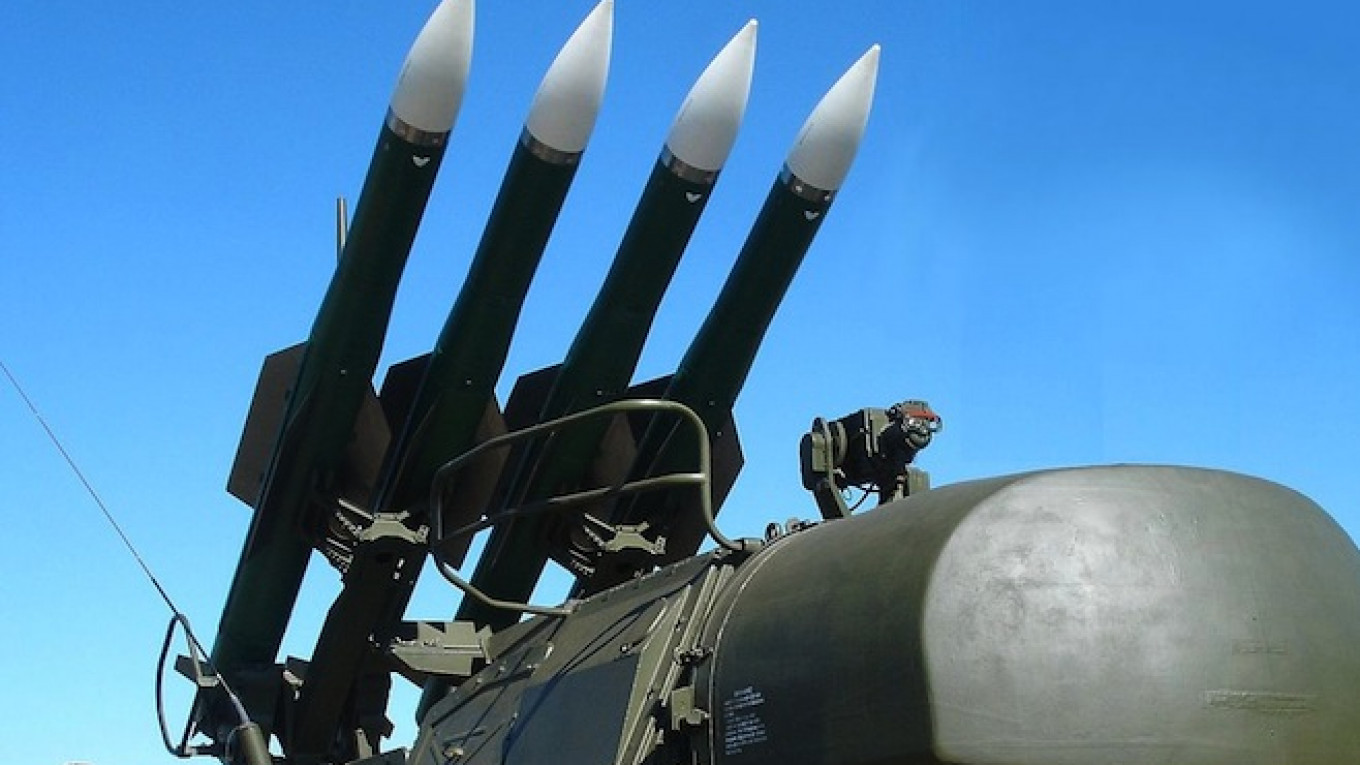As Russia and Ukraine trade blame over the apparent shooting down of a Malaysian airliner, they appear to agree on one thing: the type of Soviet-era missile that brought it down.
But if an SA-11 Buk missile struck the aircraft and killed all 298 on board, that won't solve the mystery of who did it: Russia, Ukraine and Russian-speaking rebels have all claimed the missile in their arsenals.
Circumstantial evidence points increasingly to the separatists, Western officials and analysts say, pointing to rebel claims of shooting at Ukrainian military aircraft at approximately the same time.
The rebels were believed to have used a similar system to shoot down a Ukrainian Antonov AN-26 aircraft on Monday.
Whether the 1970s-era radar-guided missiles would have been supplied by Russia or captured from Ukrainian forces is uncertain.
"Even if we know the weapon type, it is impossible now to say where it came from," said Samuel Charap, a former U.S. State Department official and now a fellow at the International Institute for Strategic Studies in Washington.
On June 29, Russian newswire ITAR-Tass quoted separatists in Donetsk in eastern Ukraine, not far from where the plane went down, as saying they had seized control of a missile defense army unit equipped with the Buk system.
Ukrainian Interior Ministry official Anton Gerashchenko said after the crash the Buk anti-aircraft system was "kindly given to the separatists by (Russian President Vladimir) Putin."
Moscow, however, suggests Ukraine was responsible.
RIA Novosti quoted a source as saying a Ukrainian army battalion had a Buk system deployed near the city of Donetsk a day before the crash and the missile likely came from that system. The source said the anti-government forces in eastern Ukraine do not have the Buk system.
If rebels were at the helm of the Buk system, they were not likely well trained in its use and may have simply misidentified it as a Ukraine military plane, Charap said.
"It's the kind of scenario that becomes much more likely when you give a lot of undertrained and unreliable people sophisticated weaponry," he said.
Nick de Larrinaga, an analyst at IHS Jane's Defence, said the shoulder-fired missiles typically used by separatist rebels in eastern Ukraine would not be able to hit a passenger aircraft flying at normal cruising altitude. Such weapons have shot down several Ukrainian helicopters and aircraft.
He said a commercial aircraft would, however, have been in range of surface-to-air missile systems such as the Buk or alternatively the Russian-made S-300, also called the "SA-10 Grumble."
"Both Russia and Ukraine have such SAM (surface-to-air missile) systems in their inventories," he said.
The Buk — which means beech tree in Russian – includes four missiles on a turntable mounted on a tracked vehicle. A separate tracked vehicle carries early warning and acquisition radars.
The system's 5.7-meter (19-foot), 55-kg (110-lb) missiles have a range of up to 28 km (18 miles).
Ukraine banned tests of the Buk, the S-300 and similar missile systems for seven years after a wayward missile hit a Russian Tu-154 airliner flying from Israel to Siberia in 2001, killing all 78 people on board.
Ukraine says Russian jets shot down a Ukrainian SU-27 fighter on Wednesday. Kiev has been stepping up its air strikes along the border and this week also accused Russia of violating its territory in an airstrike on the town of Snizhe.
Senior U.S. officials point to a boast on Russian social media by pro-rebel commander Igor Girkin, who uses the nom de guerre Strelkov, that the rebels had shot down a plane.
One of the U.S. officials said the social media post was thought to be genuine, and another said Moscow and its allies would have a difficult time explaining Girkin's boast away.
"That is hard to get around," the official said.
See also:
World Leaders Demand Probe Into Malaysian Plane Crash in Ukraine
A Message from The Moscow Times:
Dear readers,
We are facing unprecedented challenges. Russia's Prosecutor General's Office has designated The Moscow Times as an "undesirable" organization, criminalizing our work and putting our staff at risk of prosecution. This follows our earlier unjust labeling as a "foreign agent."
These actions are direct attempts to silence independent journalism in Russia. The authorities claim our work "discredits the decisions of the Russian leadership." We see things differently: we strive to provide accurate, unbiased reporting on Russia.
We, the journalists of The Moscow Times, refuse to be silenced. But to continue our work, we need your help.
Your support, no matter how small, makes a world of difference. If you can, please support us monthly starting from just $2. It's quick to set up, and every contribution makes a significant impact.
By supporting The Moscow Times, you're defending open, independent journalism in the face of repression. Thank you for standing with us.
Remind me later.






